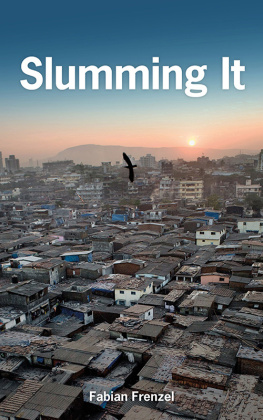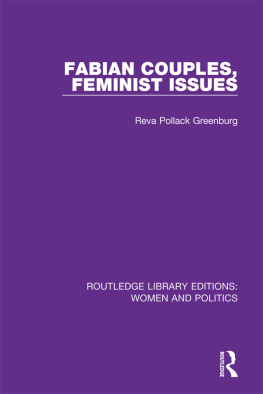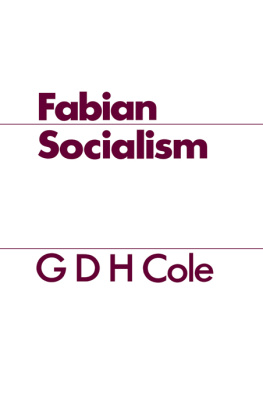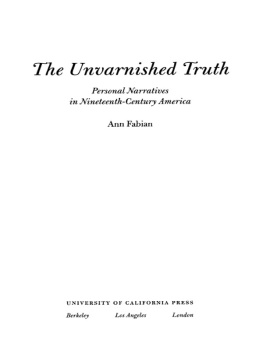Fabian Frenzel - Slumming It
Here you can read online Fabian Frenzel - Slumming It full text of the book (entire story) in english for free. Download pdf and epub, get meaning, cover and reviews about this ebook. year: 2016, publisher: Frenzel, Fabian., Zed Books, genre: Politics. Description of the work, (preface) as well as reviews are available. Best literature library LitArk.com created for fans of good reading and offers a wide selection of genres:
Romance novel
Science fiction
Adventure
Detective
Science
History
Home and family
Prose
Art
Politics
Computer
Non-fiction
Religion
Business
Children
Humor
Choose a favorite category and find really read worthwhile books. Enjoy immersion in the world of imagination, feel the emotions of the characters or learn something new for yourself, make an fascinating discovery.
- Book:Slumming It
- Author:
- Publisher:Frenzel, Fabian., Zed Books
- Genre:
- Year:2016
- Rating:5 / 5
- Favourites:Add to favourites
- Your mark:
- 100
- 1
- 2
- 3
- 4
- 5
Slumming It: summary, description and annotation
We offer to read an annotation, description, summary or preface (depends on what the author of the book "Slumming It" wrote himself). If you haven't found the necessary information about the book — write in the comments, we will try to find it.
Slumming It — read online for free the complete book (whole text) full work
Below is the text of the book, divided by pages. System saving the place of the last page read, allows you to conveniently read the book "Slumming It" online for free, without having to search again every time where you left off. Put a bookmark, and you can go to the page where you finished reading at any time.
Font size:
Interval:
Bookmark:

SLUMMING IT
About the author
Fabian Frenzel is lecturer in organization studies at the University of Leicester and senior research associate with the University of Johannesburg. From 2012 to 2014 he was a Marie Skodowska-Curie fellow at the University of Potsdam, Germany. His research interests concern the intersections of mobility, politics and organization studies. His previous books include Protest Camps (co-authored with Anna Feigenbaum and Patrick McCurdy, Zed Books, 2013).
SLUMMING
IT
THE TOURIST VALORIZATION
OF URBAN POVERTY
FABIAN FRENZEL

Slumming It: The Tourist Valorization of Urban Poverty was first published in 2016 by Zed Books Ltd, The Foundry, 17 Oval Way, London SE11 5RR, UK.
www.zedbooks.net
Copyright Fabian Frenzel 2016
The right of Fabian Frenzel to be identified as the author of this work has been asserted by him in accordance with the Copyright, Designs and Patents Act, 1988.
Typeset in Sabon by Lumina Datamatics Ltd.
Index:
Cover design: www.roguefour.co.uk
All rights reserved. No part of this publication may be reproduced, stored in a retrieval system or transmitted in any form or by any means, electronic, mechanical, photocopying or otherwise, without the prior permission of Zed Books Ltd.
A catalogue record for this book is available from the British Library.
ISBN978-1-78360-444-9 hb
ISBN978-1-78360-443-2 pb
ISBN978-1-78360-445-6 pdf
ISBN978-1-78360-446-3 epub
ISBN978-1-78360-447-0 mobi
In memory of Siegfried Frenzel
CONTENTS
FIGURES
ACKNOWLEDGEMENTS
Over the last years I have received support, engagement and encouragement from a huge variety of people, without whom this book would not exist. I would like to express my gratitude to all those who agreed to share their experiences, interpretations and opinions of slum tourism with me, whether they set up tours, guide tourists, saw and reflected on visitors to their communities or toured themselves.
I would like to thank (in no particular order) Ellen Sluis, Eddu Grau, Emily LeBaron, Jssica Souto, Andre Vlaams Valle, Bob Nadkarni, Sheila Souza, Matthias Lambrecht, Rahul Srivastava, Matias Echanove, Shyam Kanle, Vinot Shetty, Sagar Vatapu, Stephanie Hays, Nick Hamilton, Adina Goerke, Fahim Vora, Fredrick Omondi, Douglas Rori, Peta Thomas, Milena Ivanovic, Lebo, James Fernie, Jo Buitendach, Nickolaus Bauer, Malebo Rammekoa and Paul Nkemngu Acha-Anyi.
I would also like to thank all participants of the tourism workshops at Barraco #55, Complexo do Alemo, Rio and all the participants of the Handstorm workshop in Shivaji Nagar, Mumbai. The team of URBZ in Mumbai allowed me to use their offices and provided much insight into Dharavi and beyond. Colleges at the School of Tourism and Hospitality at the University of Johannesburg demonstrated their fine understanding of hospitality when hosting me.
For years of inspiration, co-operation and debates on slum tourism, I would like to express my appreciation to Ko Koens, Malte Steinbrink, Bianca Freire-Medeiros, Eveline Drr, Manfred Rolfes, Julia Burgold, Chris Rogerson, Stephanie Blakeman and Thomas Frisch. The global network of slum tourism researchers and all participants of the second network conference on slum tourism in Potsdam provided space for much reflection and intellectual exchange. Developments in the field of slum tourism studies can be traced on the webpage of the slum tourism network, www.slumtourim.net.
The European Research Council enabled me to conduct much of the research that went into this book by granting me a Marie Skodowska-Curie Fellowship. A fabulous team of human geographers and the amazing research support staff at the University of Potsdam made the fellowship a hugely rewarding experience. The broader research project of which this book forms a part is documented on www.qualpot.eu.
I would also like to extend my gratitude to colleagues at the School of Management, University of Leicester, for providing such a creative and intellectually stimulating environment. The Centre for Philosophy and Political Economy gave me the space to propose and debate ideas on care in slum tourism, and participants of the Leicester Peoples University offered important feedback on rebellious tourism. Special thanks go to Franziska Dahlmeier for pointing me to Isabel Stengers notion of the idiot. Imogen Tyler offered substantial and invaluable feedback on the whole manuscript, for which I am immensely grateful.
I would like to thank Kika Sroka-Miller, Dan Och, Dominic Fagan and the whole team at Zed Books for their support in bringing this book from proposal to final production stage. My thanks also go to the anonymous reviewers of the first draft. I am greatly indebted to Merry and Joanna Crowson who proofread the whole manuscript and provided substantial commentary.
I would also like to thank Dorothea, Sebastian and Korbinian Frenzel for their continuous care, curiosity and support. Finally, I want to express my gratitude to Merry Crowson for being with me.
The book is dedicated to the memory of my father Siegfried Frenzel.
CHAPTER 1
Introduction
Tourism and the slum
In 2014 over one million tourists visited a township, a favela, a barrio or a slum in some part of the world. By far the largest number visit South Africas townships, where, since the end of apartheid, slum tourism has become a mass tourist activity. Rios favelas and one large slum in Mumbai, Dharavi, also receive significant numbers of visitors. In a variety of locations around the world, slum tourism is now emerging as a niche form of tourism. Slum tourism takes place largely as three- to four-hour guided tours, but recent years have shown a remarkable diversification of tourism activities. Slum tourism takes place in vans and jeeps, but also as walking tours or on bikes. Beyond touring the slum, tourists today find accommodation in slums, and visit restaurants, bars, concert venues, markets or festivals. In Johannesburg, South Africa, it is possible to bungee-jump from the cooling towers of a disused power plant, overlooking the large cluster of townships that is Soweto ().
Much of this recent trend in tourism emerged in South Africa and in Rio de Janeiro in the early 1990s. As a form of tourism it has spread from these two destinations, inspiring new destinations to provide similar offers. The first slum tours in India, founded in 2006 in Dharavi, Mumbai, as Reality Tour and Travel (RTT), were conceived when one of the founders visited Rio and took part in a tour there. In the meantime RTT has expanded to Delhi, has supported the set-up of slum tours in Manila, Philippines, and, importantly, inspired a number of competitors in Dharavi. In the countries neighbouring South Africa, including Zambia, Namibia and Zimbabwe, township and slum tours have emerged, building on the success of tours in Cape Town and Johannesburg. In Latin America, barrios ).
Tourist interest in slums has influenced policy-makers. In South Africa policy has attempted to use the tourism income streams for the cherished broad based black economic empowerment, attempting to make the tourism industry more beneficial for the countrys black and often relatively poor majority. In Rio de Janeiro, favela tourism has been embraced and supported by policy in attempts to pacify and normalize favelas and to create employment and income opportunities. In Medelln, Colombia, the city government improved the transport infrastructure of Medellns barrios by constructing cable cars that provide access to the city. They also aimed at and succeeded in bringing tourists to the barrios, encouraged by building landmark architecture on the high platforms of the cable car. Tourists have since flocked into the barrios, very much as in Rio, where now two of these cable cars exist and double as resident and tourist modes of transport ().
Next pageFont size:
Interval:
Bookmark:
Similar books «Slumming It»
Look at similar books to Slumming It. We have selected literature similar in name and meaning in the hope of providing readers with more options to find new, interesting, not yet read works.
Discussion, reviews of the book Slumming It and just readers' own opinions. Leave your comments, write what you think about the work, its meaning or the main characters. Specify what exactly you liked and what you didn't like, and why you think so.











